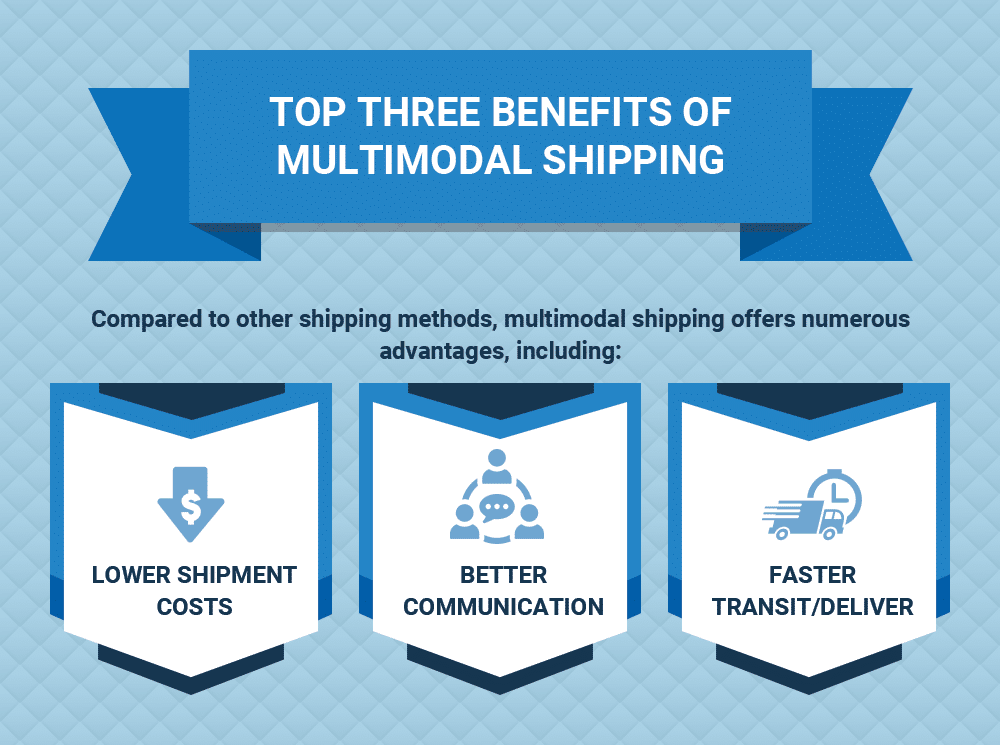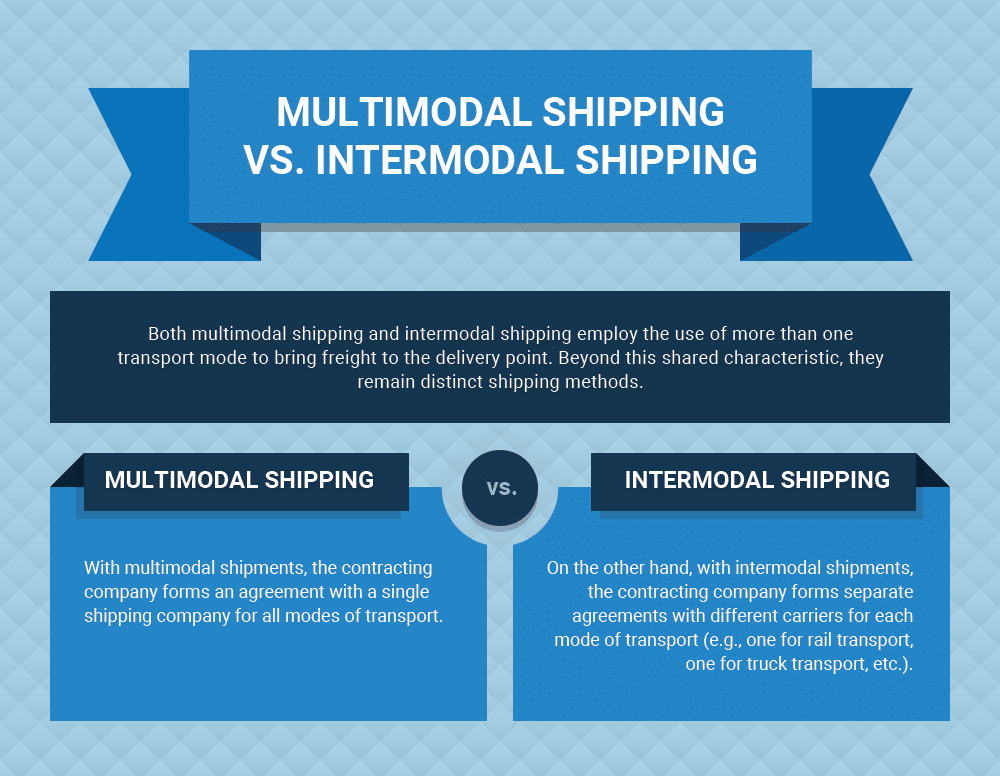All About Multimodal Transport and Shipping
There are four main shipping modes employed: air, ground, sea, and rail. Each poses unique benefits and limitations that make it suitable for different transportation and shipping applications. Some freight shipments—such as long-distance or international ones—require the use of multiple modes to reach the final destination. For these situations, multimodal transport is an ideal solution.
Multimodal transport—also referred to as multimodal shipping or combined transport—refers to a single contractual agreement between a contracting company and a shipping company that involves the use of more than one transport mode to move goods. Below we provide an overview of the process, outlining some of the top benefits and comparisons to alternative methods.
Top Three Benefits of Multimodal Shipping

Compared to other shipping methods, multimodal shipping offers numerous advantages, including:
Lower Shipment Costs
Although shipping companies involved in multimodal transport agreements—also known as multimodal transport operators (MTOs)—remain responsible for freight throughout its journey to the delivery point, they may subcontract out to other carriers to help bring the shipment to its final destination. Their relationships with these companies allow them to negotiate better rates, resulting in lower shipping costs for the contracting company.
Better Communication
MTOs need to maintain open communication with any and all subcontracted carriers for multimodal transport to work properly. However, the contracting company only needs to interface with the MTO. By choosing multimodal transport for their shipping needs, they eliminate the need to contact several different parties in the event of an issue. In general, a single call to the MTO is all that is necessary to initiate the identification and resolution of any problem with the freight shipment.
Faster Transit/Delivery
New shipping and transportation regulations, such as the Electronic Logging Devices (ELD) Mandate, have imposed limitations on the amount of time a single carrier can spend moving freight. As multimodal shipping employs more than one mode of transport—generally with one picking up where another left off—cargo can continue on its way to the final destination with little to no interruptions without breaking regulations.
Multimodal Shipping vs. Intermodal Shipping
Both multimodal shipping and intermodal shipping employ the use of more than one transport mode to bring freight to the delivery point. Beyond this shared characteristic, they remain distinct shipping methods. With multimodal shipments, the contracting company forms an agreement with a single shipping company for all modes of transport. On the other hand, with intermodal shipments, the contracting company forms separate agreements with different carriers for each mode of transport (e.g., one for rail transport, one for truck transport, etc.).

While both are viable transport options, they are appropriate for different situations. For example:
Multimodal shipping offers the convenience of an all-inclusive shipping solution. The contracting company does not need to manage contracts with multiple companies, reducing the amount of time and money spent on communicating and coordinating with all interested parties. Additionally, they can rely on the shipping company to keep track of freight and ensure it gets to its final destination on time and on budget.
Intermodal shipping allows for greater flexibility. As the contracting company makes individual contracts with each carrier, they can choose ones with the lowest rates to reduce overall shipping costs or specialized equipment and capabilities to accommodate unique requirements. Additionally, they can also interrupt or redirect shipment at any point during the transport to suit changing needs.
Which of these shipping methods is ideal depends on the contracting company. Their logistics team needs to analyze their shipping needs and determine which of the two best fits their requirements and restrictions. Some of the factors to consider include total time and money investment, environmental impact, and cargo specifications.
Contact the Freight Transportation Experts at Satellite Specialized Transportation Today
Multimodal transport is a convenient shipping method that, when employed properly, allows for lower shipping costs, better communication, and faster delivery. For all multimodal transport needs, turn to the experts at Satellite Specialized Transportation.
Equipped with over thirty years of transportation industry experience, our team has the knowledge and skills to get cargo where you need it when you need it. For additional information about our shipping capabilities, visit our About Us page or contact us today. To get pricing details, request a quote.

